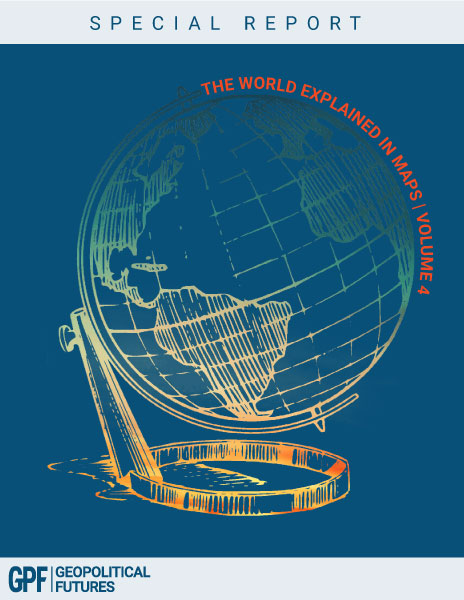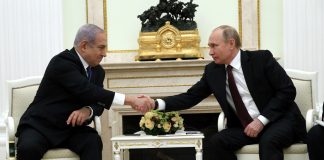The decision by the Australian government to join a U.S.-British consortium to help construct a nuclear submarine capability enraged France, whose previous efforts to that end were abandoned. To smooth things over, Australia explained that there had been significant delays in France’s work, citing cultural issues such as France’s propensity to take the month of August for vacation and to fail to show up at meetings on time. (More important is that Canberra believed a nuclear sub program met its needs better than diesel-electric ones did.) It was a huge contract, and I always enjoy France’s ability to be outraged, as well as Australia’s inability to match it.
Behind the noise, Australia’s decision was about geopolitics, not contracts. When the agreement with France was signed in 2016, and in the years prior to 2016 when the deal was negotiated, the world looked different than it does today. According to some, China was evolving economically, focusing on international trade and evolving toward some sort of internal liberalism. China was a huge customer for Australian minerals, and Chinese students were flooding Australian universities. Australia saw the decision to build a nuclear submarine fleet as part of the modernization of its fleet rather than a preparation for some battle to come. The Australians were aligned with the United States but were not obliged to buy American technology. Nor did Canberra have to consider the issue in the context of maintaining its supply lines.
War is not inevitable, nor in my opinion likely. But nations must prepare for the worst-case scenario. To buy equipment from France raises the question of French intentions and capabilities in the event of war. In times of peace, the purchase of equipment isn’t necessarily based on an alignment of interests or an ability or willingness to participate in a potential conflict. A nation needs to have a comprehensive relationship with a country likely and able to share risks. Price, in other words, is not the issue. The acquisition of weapons must be part of a systematic and common interest. France did not fit this profile. Its action or inaction from Australia’s point of view is unpredictable. France has its interests, and it is not clear they will align with Australia’s.
In 2016, this was not an issue. Now it is.
The submarine acquisition ties together three island nations. Britain and Australia are clearly islands. The United States, as the dominant power in North America, is also an island nation. World War II was fundamentally a naval war, even if other services absorbed the mass of casualties. The United States was the prime source of material and manpower. Britain could survive only if it received that material from the United States, and if Britain fell, the future of the Atlantic and United States would be in question. The United States also had to prevent Japan from dominating the Pacific. From the beginning, it saw Australia as a way to provide a geographical foundation for launching a counterattack in the Western Pacific.
Neither Britain nor Australia could resist a Japanese-dominated Asia-Pacific region or a German-dominated Atlantic. In Washington’s worst-case scenario, the United States would see its two coasts at risk and thus find itself isolated from the world. An alliance built around Britain, Australia and the United States, along with the weight of Canada and New Zealand, blocked German and Japanese domination of the oceans and provided manpower for engaging on land and bases for air power. The interests of all of these nations aligned. The U.S. had to secure Britain and block Japan for its own interest. Britain and Australia obviously had to retain their territory. There were tactical disagreements, but the strategic agreement was self-evident.
With the submarine deal (not to mention many other cooperative actions), the logic of World War II is reemerging, not as war but as a potential war. The Atlantic is not challenged at the moment, but Britain has already differentiated itself from Europe through Brexit. It has fought alongside the United States in many wars, however misbegotten they may have been. Its strategic interests in the long run are not tied to Europe but, as it was in the 1940s, to the United States.
Australia faces a potential threat from China, which is pressing for access and control of the Western Pacific. Australia cannot confront China alone. The United States cannot cede the Pacific in whole or in part to China. In the event of a war – here again, I regard this as unlikely – Australia must have a relationship with a power that can block China and that has an imperative to do so. As in World War II, Australia must be able to play a significant role in the war.
When we look at it this way, we can understand the geopolitical logic in Australia’s shift on the purchase of the submarines. In a situation in which war is farfetched, the acquisition of equipment can be treated as stand-alone purchases. When war shifts from farfetched to unlikely, what is needed is a comprehensive alliance in which any acquisition builds the alliance, and in which resupply is in the interest of all countries involved.
France has limited interests in the Pacific and certainly no interest or ability to wage an extended war there. Supplying parts for the submarine fleet could be interpreted by China as an act of war, and it is unknown what France’s intent and ability to support the fleet might be. Australia’s circumstances have changed since 2016, and therefore the source of support for the submarine fleet becomes a matter of fundamental national interest. Of course, France understands as much but finds it useful to portray itself as betrayed.
But far more interesting is to watch the evolution of the Five Eyes, the intelligence consortium of the United States, Britain, Australia, Canada and New Zealand. The three major powers have already woven an alliance moving well beyond intelligence.
The most important point is that a very real international alliance system centered on the ocean is emerging. NATO is still there, but its mission and capabilities in the event of war are unclear. This English-speaking alliance moves forward in steps. We need to read the repudiation of the French contract in this light. And perhaps France’s rage, which goes beyond an undeniably lucrative contract, has something to do with this.






